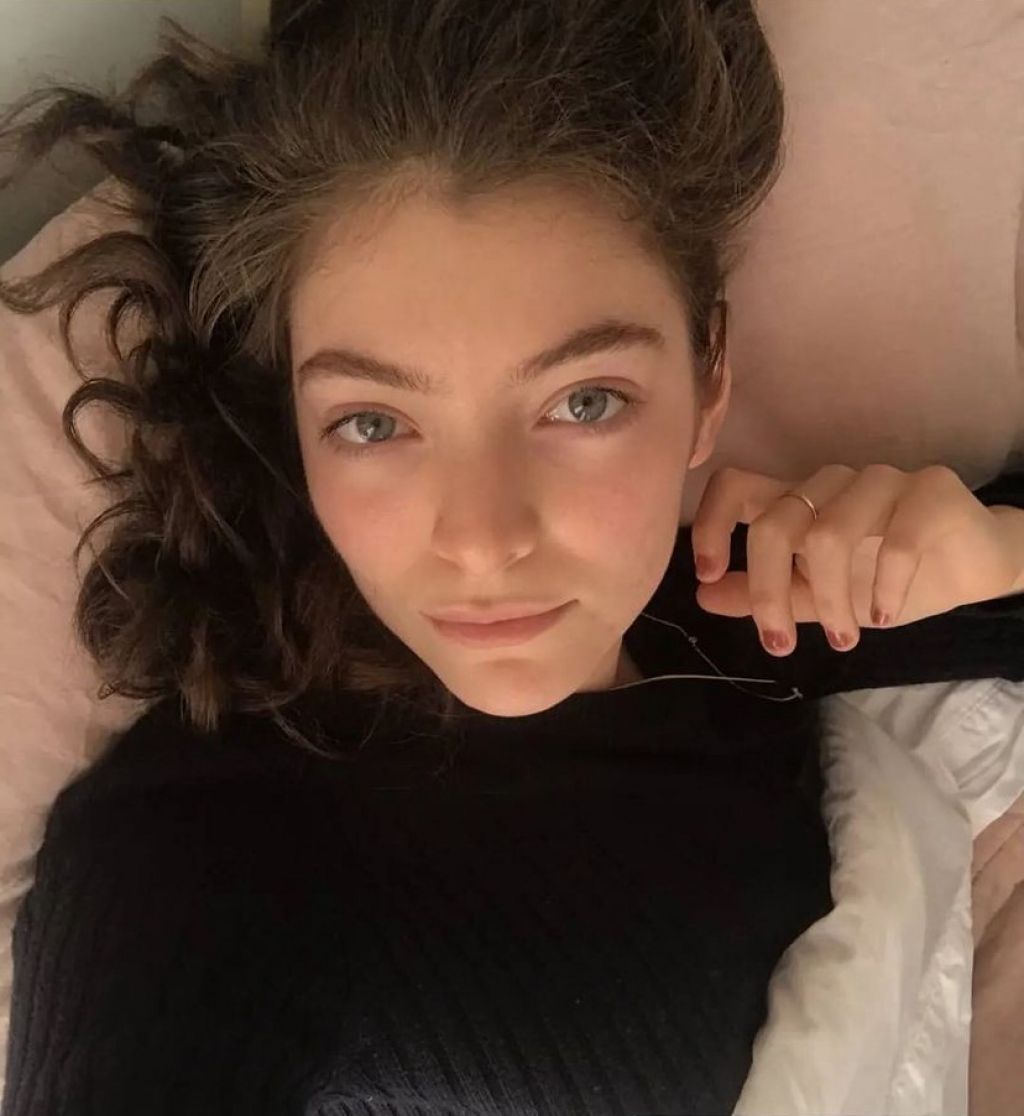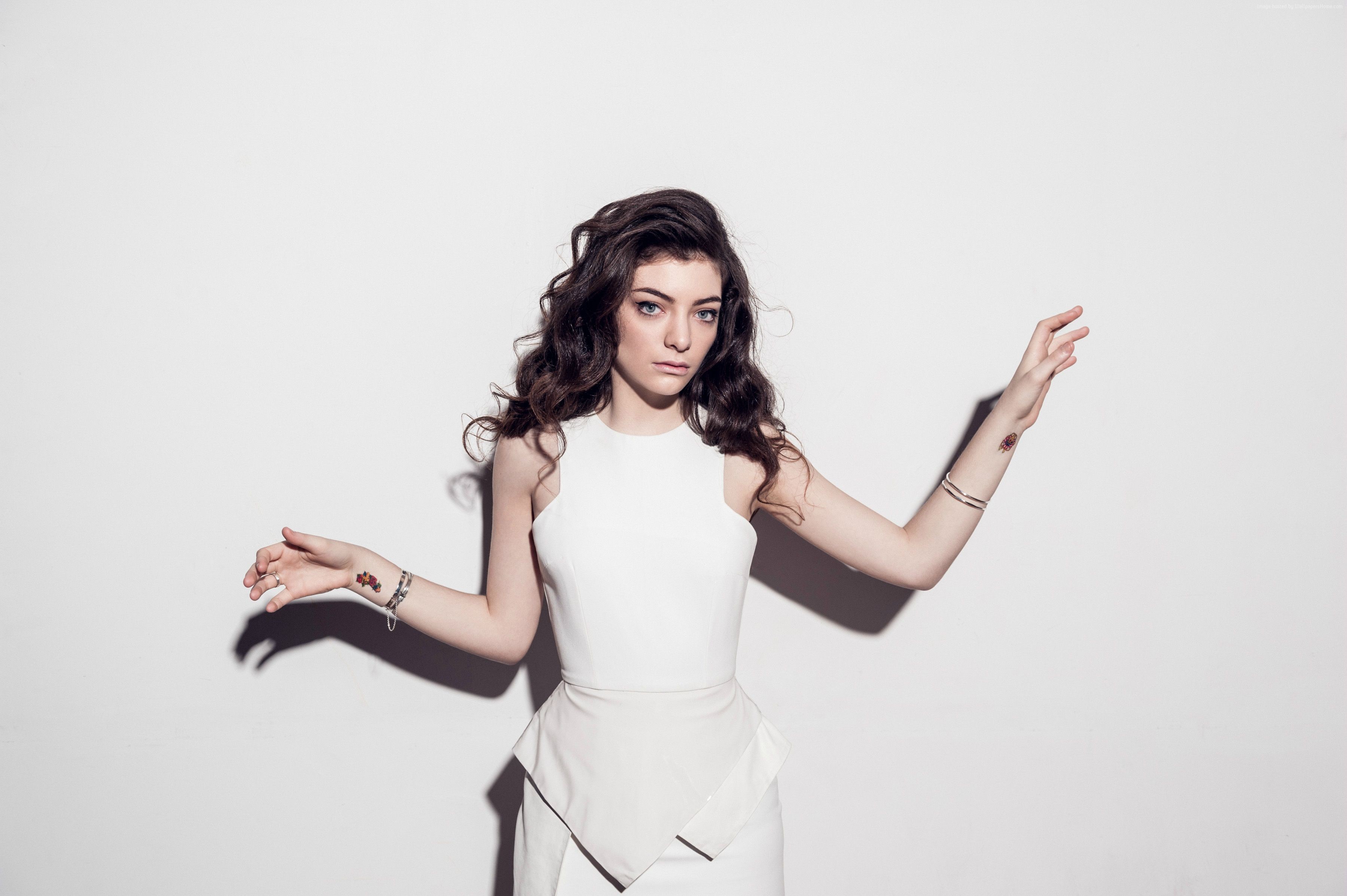For many music enthusiasts, the mention of Lorde often brings to mind a certain kind of sound: deep, introspective, and a bit moody. She burst onto the scene with a unique voice, capturing the feelings of a generation with songs that felt both personal and universal. Her early work, particularly "Royals," seemed to really connect with people, setting a high bar for what was to come, you know? It established her as someone who truly understood the subtle feelings of young adulthood, speaking to many with her thoughtful words.
Then, as her career moved forward, some listeners found themselves asking, "Lorde - what was that?" This question often popped up when her musical style shifted, particularly with albums like *Solar Power*. It wasn't just a simple change in beat or tune; it was, arguably, a pretty big move away from the darker, more intense feelings that defined her earlier recordings. This kind of shift can sometimes leave fans wondering about an artist's direction, and that's completely fair, in a way.
Exploring this question means looking at her artistic journey, understanding why she made these changes, and how fans and critics reacted. It's about seeing the bigger picture of a musician who isn't afraid to grow and explore different creative avenues, even if it means challenging expectations. So, let's take a closer look at what might have prompted these changes and how they shaped her identity as an artist, too it's almost.
- Europa Arms Quest Guide
- Kelsey Plum Biography Net Worth Husband And 2023 Update
- Kill Six Billion Demons
- Mountain Dog Golden Retriever
- Clearchoice Dental Implant Centers
Table of Contents
- Biography and Early Life
- Personal Details and Bio Data
- The Early Sound: Pure Heroine and Melodrama
- The Solar Power Shift and the Question "What Was That?"
- Deconstructing the Artistic Evolution
- Lorde's Legacy and Future
- Frequently Asked Questions About Lorde
- Conclusion: Her Unfolding Story
Biography and Early Life
Ella Marija Lani Yelich-O'Connor, known to the world as Lorde, was born in Takapuna, Auckland, New Zealand. Her mother, Sonja Yelich, is a poet, and her father, Vic O'Connor, is a civil engineer. This background, you know, with a poet for a mother, probably gave her an early appreciation for words and how they fit together. She grew up in Devonport, a suburb of Auckland, and showed a very early interest in singing and performing, actually.
She signed with Universal Music Group at just 13 years old, which is pretty incredible when you think about it. This happened after her manager, Scott Maclachlan, saw her perform at a school talent show. It's almost like she was destined for this path. Her journey into music began quite young, and she quickly started working on her distinct sound, a sound that would soon grab the attention of listeners around the globe, basically.
Lorde's early influences were quite diverse, ranging from artists like Etta James and Otis Redding to more contemporary acts. She also drew inspiration from books and everyday observations, which you can really feel in her song lyrics. This wide range of influences helped her create a style that was truly her own, making her stand out in the pop music landscape, even at a young age, you know, in a way.
- Understanding The Legacy Of Zaho De Sagazans Father Olivier De Sagazan
- Fuquay Varina High School
- Unlocking The Story Behind Nba Rising Star Max Christies Family
- Kunle Afolayans Children A Legacy In Filmmaking
- Is Lady Gaga Pregnant
Personal Details and Bio Data
| Category | Detail |
|---|---|
| Full Name | Ella Marija Lani Yelich-O'Connor |
| Stage Name | Lorde |
| Date of Birth | November 7, 1996 |
| Birthplace | Takapuna, Auckland, New Zealand |
| Nationality | New Zealander |
| Occupation | Singer, Songwriter |
| Genre | Art Pop, Electropop, Indie Pop |
| Years Active | 2009–present |
| Labels | Universal Music Group, Republic Records |
The Early Sound: Pure Heroine and Melodrama
Pure Heroine: A Defining Debut
When Lorde released her debut album, *Pure Heroine*, in 2013, it felt like a breath of fresh air. The album, you know, with its minimalist production and sharp, observational lyrics, really spoke to a generation. Songs like "Royals" and "Team" became instant hits, topping charts and earning her critical acclaim. She captured the boredom and aspirations of suburban youth in a way that felt incredibly honest, in fact.
The sound was distinct: dark, electronic, and somewhat atmospheric. Her voice, deep and resonant, floated over sparse beats, creating a mood that was both haunting and captivating. It was, arguably, quite different from the upbeat pop that was popular at the time. This unique approach made her stand out, and she quickly gathered a devoted following who appreciated her raw talent and thoughtful songwriting, you know, very much so.
This album earned her numerous awards, including two Grammy Awards. It solidified her place as a significant new voice in music. People were really drawn to her authenticity and the way she articulated feelings that many shared but couldn't quite express. She really hit a nerve with that first record, and it set a very high standard for what listeners expected from her, too it's almost.
Melodrama: The Sophomore Masterpiece
Four years later, in 2017, Lorde returned with *Melodrama*, an album that many critics and fans consider a modern classic. This record, you know, explored the intense emotions of heartbreak and coming of age, all set against the backdrop of a single house party. It was a bit more expansive than *Pure Heroine*, with richer production and more dynamic arrangements, actually.
Songs like "Green Light" and "Liability" showcased her growth as a songwriter and performer. The album maintained her signature introspection but added a new layer of vulnerability and emotional intensity. It felt like a natural progression, building on the foundations of her debut while pushing her sound into more vibrant and complex areas. Fans generally embraced this evolution, seeing it as a sign of her maturing artistry, as a matter of fact.
*Melodrama* was widely praised for its lyrical depth, emotional honesty, and innovative soundscapes. It earned her another Grammy nomination and cemented her reputation as one of the most compelling artists of her generation. For many, this album represented the peak of her established style, a style that had truly defined her up to that point, you know, pretty much.
The Solar Power Shift and the Question "What Was That?"
A New Direction: Solar Power
After another four-year break, Lorde released *Solar Power* in 2021, and this album, you know, was where many listeners first asked, "Lorde - what was that?" The sound was dramatically different from her previous work. Gone were the dark, electronic beats and the intense, late-night feelings. Instead, she offered a sun-drenched, acoustic-driven collection of songs, frankly.
The album embraced a more laid-back, almost folk-pop vibe, with themes of nature, escapism, and a gentle critique of celebrity culture. It was, admittedly, a bit of a shock for those expecting another *Melodrama*. The change was so pronounced that it felt like a complete departure, rather than a gradual evolution. This new direction left some fans scratching their heads, wondering if this was still the Lorde they knew, you know, like your.
Songs like the title track "Solar Power" and "Stoned at the Nail Salon" showcased this lighter, more reflective tone. The production was airy and organic, a stark contrast to the dense layers of her earlier albums. It was a conscious choice, she explained, to move away from the intensity of her previous life and embrace a more natural, peaceful existence. This shift was definitely a big topic of discussion, you know, pretty much.
Fan and Critic Reactions
The reaction to *Solar Power* was, shall we say, mixed. Some critics praised her bravery for experimenting and evolving, seeing it as a sign of artistic integrity. They appreciated the mature themes and the relaxed atmosphere of the album, finding beauty in its simplicity. For these listeners, it was a refreshing change, a demonstration of her willingness to take creative risks, actually.
However, many long-time fans expressed disappointment. They missed the emotional depth, the sharp lyrics, and the distinctive sound that had drawn them to her in the first place. The album's lighter tone and less immediate melodies didn't resonate with everyone. This led to a lot of online discussion and, you know, people trying to figure out what had happened to the artist they admired. It was a bit of a moment for fan discourse, to be honest.
The phrase "Lorde - what was that?" became a shorthand for this sense of surprise and, for some, confusion. It wasn't necessarily a negative judgment, but rather a genuine query about the unexpected turn her music had taken. It really highlighted how deeply invested people were in her previous work and how much they had come to expect a certain style from her, you know, like your favorite artist.
Deconstructing the Artistic Evolution
Personal Growth and Inspiration
Artists, like all people, grow and change over time. Lorde herself has spoken about how her life experiences heavily influence her music. After the intense period surrounding *Melodrama* and the constant touring, she sought a quieter, more grounded existence. This personal shift, you know, naturally found its way into her creative output. She spent time in her home country, reconnecting with nature and a simpler way of life, in a way.
The inspiration for *Solar Power* came from this desire for peace and a break from the pressures of fame. She wanted to create something that felt joyful and warm, a contrast to the darker themes of her earlier work. It was, arguably, a reflection of where she was at that point in her life, seeking light and calm. This kind of personal journey often leads to significant artistic shifts, as a matter of fact.
She often draws from the things she enjoys, like videos and music she loves, and the simple act of sharing content with friends and family. This kind of personal enjoyment and connection, you know, can very much inspire a new creative direction, moving away from the more intense public gaze. It's about finding new feelings to explore, and that's a pretty big deal for an artist, you know.
The Pressure of Expectations
When an artist achieves massive success with a particular sound, there's often an unspoken expectation for them to stick to that formula. Lorde faced immense pressure after the widespread adoration for *Pure Heroine* and *Melodrama*. Every new release was scrutinized, compared to her previous triumphs. This can be a heavy burden for any creative person, you know, really heavy.
Choosing to pivot so drastically with *Solar Power* was, in many ways, a courageous act of artistic independence. She opted to follow her own creative impulses rather than trying to recreate past successes. This decision, while perhaps alienating some fans, also showed a strong commitment to her artistic vision, which is something to admire, basically. It's not easy to go against what people expect, you know.
Artists, quite frankly, often need to explore new territories to keep their work fresh and meaningful to themselves. Staying in one lane might feel safe, but it can also stifle growth. Lorde's choice, therefore, was a statement about her need for artistic freedom, even if it meant a temporary disconnect with some of her audience. It's a testament to her desire to truly be herself through her art, you know, pretty much.
Musical Experimentation
Lorde has always been an artist who pays close attention to sound and atmosphere. Even within her earlier work, there was a clear sense of experimentation with electronic textures and vocal layering. The shift to *Solar Power* can be seen as another form of experimentation, just with a different set of tools and a different mood. She explored acoustic sounds and harmonies in a new way, you know, quite a new way.
This album allowed her to play with different musical styles, incorporating elements of folk, psychedelic pop, and even some classic rock influences. It was a chance to expand her musical vocabulary and challenge herself as a producer and songwriter. For an artist who thrives on creative expression, this kind of exploration is, arguably, very important for their long-term growth, you know, very much so.
Sometimes, when an artist changes their sound, it opens up new avenues for discovery for the audience too. You might find yourself enjoying a genre you hadn't considered before, or hearing familiar themes in a completely new light. It's about expanding the musical world, both for the creator and the listener. And that's, you know, a pretty cool thing to witness, to be honest.
Lorde's Legacy and Future
Despite the varied reactions to *Solar Power*, Lorde's place in contemporary music remains significant. Her first two albums alone secured her legacy as a thoughtful and influential songwriter. She proved that pop music could be intelligent, introspective, and deeply moving. Her impact on other young artists is clear, and many cite her as an inspiration, you know, definitely.
The "Lorde - what was that?" question, while initially born from surprise, has also sparked important conversations about artistic freedom, audience expectations, and the nature of creative evolution. It highlights how deeply people connect with music and how personal an artist's journey can feel to their listeners. It’s a sign that she truly matters to people, you know, very much so.
What comes next for Lorde is, of course, anyone's guess. Will she return to the darker, more electronic sounds of her earlier work? Will she continue to explore the sunnier, acoustic vibes of *Solar Power*? Or will she venture into an entirely new sonic territory? The beauty of her career is that she's unpredictable, and that's a rare and exciting quality in today's music landscape, you know, in a way. Her journey continues to unfold, and many are curious to see where it leads.
We can, in some respects, keep up with her journey by visiting platforms that allow us to enjoy the videos and music we love, where artists upload original content and share it with the world. These platforms, like the official YouTube music channel, help us find today’s top talent, featured artists, and playlists, letting us subscribe to see the latest in the music world. It's where many discover what's new and trending globally, you know, pretty much.
Learn more about Lorde's early influences on our site, and link to this page for a deeper look at her album releases.
Frequently Asked Questions About Lorde
Why did Lorde's music change with Solar Power?
Lorde's music changed with *Solar Power* primarily due to her personal growth and a desire for a different creative outlet. After the intensity of her previous albums and touring, she sought a quieter, more grounded life. This led her to embrace a lighter, acoustic-driven sound, reflecting a shift in her own feelings and inspirations. It was, arguably, a conscious artistic decision to explore new themes and sounds, you know, very much so.
Is Solar Power considered a good album?
The reception for *Solar Power* was mixed, you know, really mixed. Some critics and fans praised it for its bravery, mature themes, and relaxed atmosphere, appreciating Lorde's willingness to experiment. However, many others found it a significant departure from her signature sound, missing the emotional depth and distinct production of her earlier work. So, whether it's "good" really depends on individual taste and what listeners expected, as a matter of fact.
What are Lorde's most famous songs?
Lorde's most famous songs include "Royals," which was her breakthrough hit and earned her widespread recognition. Other very popular tracks include "Team," "Green Light," and "Liability." These songs, you know, are widely recognized and often played, representing different phases of her musical journey and showcasing her unique songwriting style. They're pretty much staples in her discography, to be honest.
Conclusion: Her Unfolding Story
The question, "Lorde - what was that?" speaks to the powerful connection artists forge with their listeners. It's a natural reaction when someone you admire takes an unexpected turn. Yet, it also highlights the essential nature of artistic freedom. Lorde, in her evolution, reminds us that creativity is not static; it's a living, breathing thing that grows and changes alongside the person creating it. Her story is still being written, and each chapter brings something new, you know, something truly fresh. It's a fascinating journey to witness, and many people are very much looking forward to what she does next, you know, honestly.
Related Resources:



Detail Author:
- Name : Ivah Borer PhD
- Username : idibbert
- Email : freddie14@goyette.info
- Birthdate : 2005-09-26
- Address : 7613 Raegan Gateway Apt. 955 Shanahanstad, VA 60109
- Phone : +1-669-586-1835
- Company : Schaden, Gutmann and Jacobs
- Job : Bartender
- Bio : Tenetur natus quia delectus ut quidem. Nostrum sed ut qui explicabo qui nemo. Neque voluptates est quo ea iste placeat autem.
Socials
instagram:
- url : https://instagram.com/colliers
- username : colliers
- bio : Asperiores ullam dolorem occaecati omnis. Eum dolorem sunt qui. Autem labore numquam vero.
- followers : 376
- following : 2480
linkedin:
- url : https://linkedin.com/in/colliers
- username : colliers
- bio : Sunt similique excepturi corrupti molestias.
- followers : 1748
- following : 2222
tiktok:
- url : https://tiktok.com/@collier2019
- username : collier2019
- bio : Voluptatem porro dolorem quia.
- followers : 5747
- following : 2728
facebook:
- url : https://facebook.com/scollier
- username : scollier
- bio : Et deleniti reprehenderit recusandae. Autem aspernatur est tempora.
- followers : 106
- following : 2454